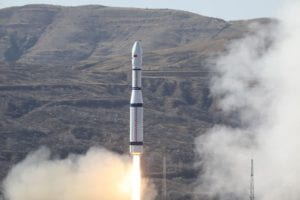Jane Jacobs once argued that, to build a successful street, “there must be eyes upon the street, eyes belonging to those we might call the natural proprietors of the street. These eyes are equipped to handle strangers and to ensure the safety of both residents and strangers.”
Recently, I discussed a question with several friends: Do you think it problematic if the government sets up electronic eyes in ALL public spaces in the name of security, despite its promise that it won’t snoop on any personal realm? Most of my respondents said that “it’s wired, but I can’t point out the problem”, while one claimed that “I welcome that, for it makes me feel safe.” As our activities have the potential to be seen in public spaces, I think the problem does not lie in the assumption that we will be constantly watched by electronic eyes, but that when our movements and behaviors are recorded, how will the government utilize the data. This assumption is not far from the reality. According to a series documentary called Amazing China broadcasted by CCTV, by 2018, China has set up the largest video monitoring network—Tianwang—in the world. Nowadays, there are more than 20 million cameras in the whole nation, and prediction of police affairs could be conducted with the help of AI and big data.

The monitoring system-Tianwang in China

Surveillance cameras on a corner of Tiananmen Square
As the number of video camera in the public spaces becomes a significant criteria in measuring the grade of modernity and public security of a city, and many of us are normally told that mass surveillance is for fighting against crime, regulating undeniable behaviors and protecting our safety in public, we largely neglect the fact that it is at the cost of our privacy. Unlike European Union countries where strong legal protections for the privacy of personal information have been well established, “privacy is a new luxury in most of the urban Asia”, including in China. A lack of awareness of privacy may generate companies’ abusive collection of personal information. I remember that when I was traveling to Weizhou Island in Guangxi, I was required to have a facial recognition before getting on board, by the passenger port company rather than the local government. Although its official website says that the recognition is to prevent illegal ticket scalping and find out the escaping criminals, I doubt whether it is a “must” to have my face recorded if I just get on the ship for once.

facial recognition payment
When facial recognition technology is used without our knowledge or against our will, it becomes an instrument of surveillance. Recently, Hangzhou Wild Animal Zoo set facial recognition as the new check-in approach without the consent of customers. Dissatisfied with the alternation, a professor charged the zoo and won the case (Read here: https://www.sohu.com/a/433404376_362042). Yet for more ordinary people, they either think little about the harm of abusive collection of personal information or they unconsciously allow machines to record their faces or fingerprints.
In the Weizhou Island case, no one at that time resisted the facial recognition, for all of us concerned merely about getting on board as quickly as we can and there were no alternatives besides having our faces recorded. The company even praised its machines as “convenient, efficient, and advanced”, concealing the hinder dangers if our information is sold to other retailers or accidentally leaks. In some Pornhub videos, faces and expressions of celebrities were maliciously grafted on the body of porn stars, almost like the real one. Imagine if those are faces of app users and citizens, will technologies turn around to control us?


